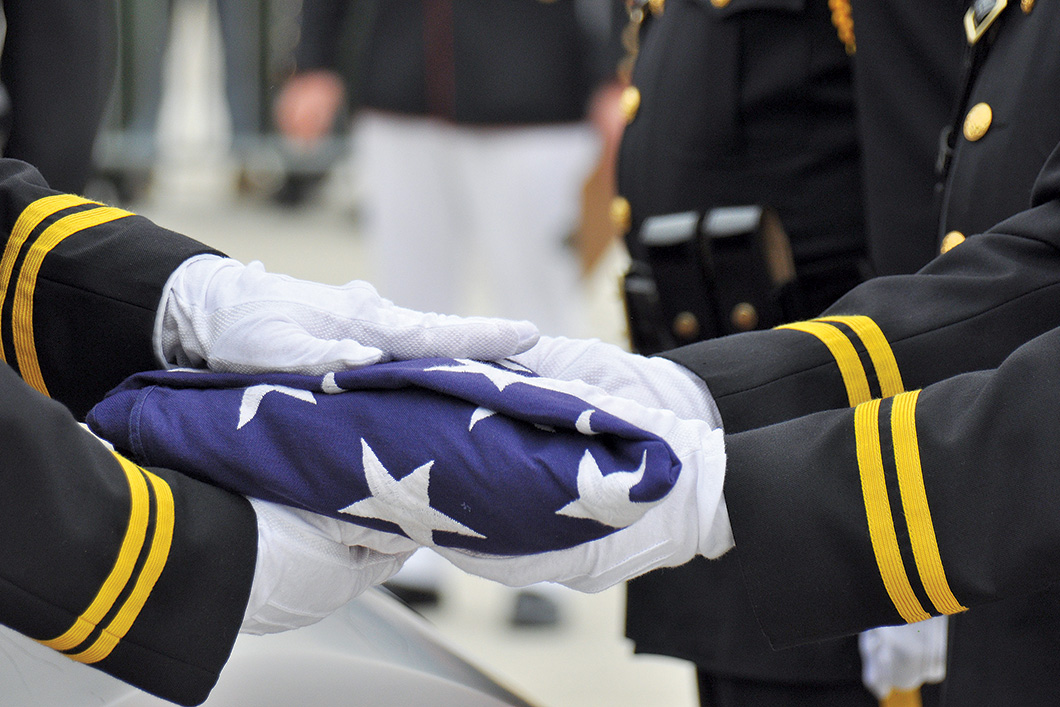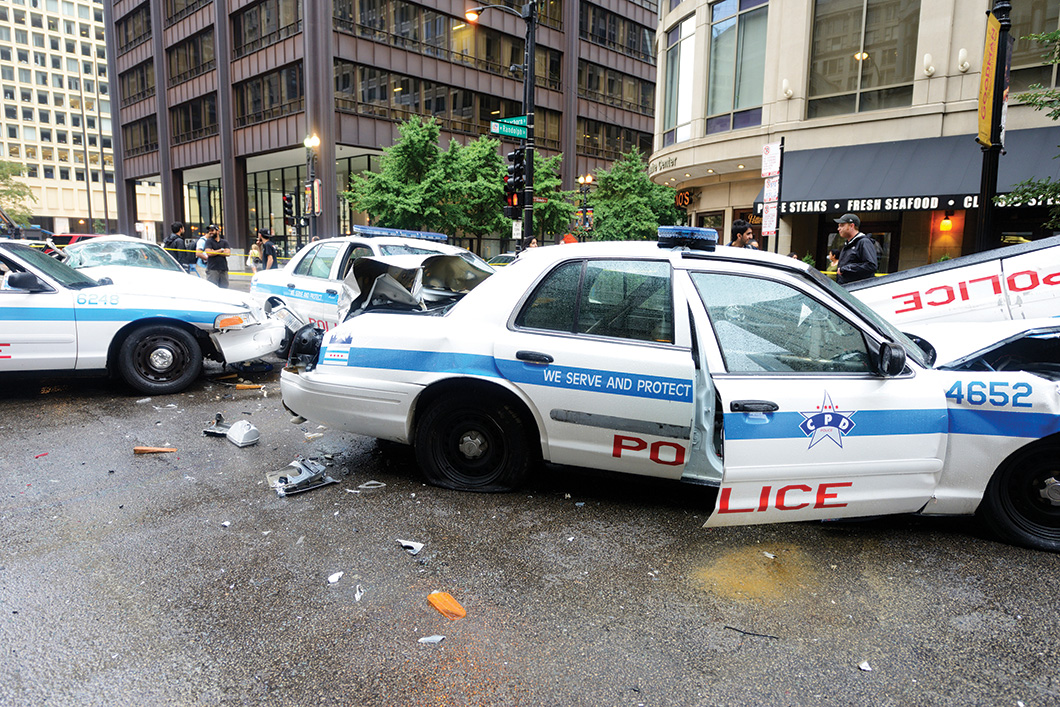
Each year, hundreds of law enforcement deaths are classified as line-of-duty deaths (LODDs). Although we understand that ours can be a deadly occupation, no one wants to see any of these losses occur. Not all LODDs are felonious, but each one has a farther-reaching impact than the public may realize. Often these deaths cause questioning of departmental policies, officer safety protocols, training, local crime, racial concerns and other issues. This article will examine various contributing factors to these deaths and how agencies can take steps to mitigate them, as well as discuss how LODDs affect departments, communities, legislators and families.

The definition of an LODD may vary throughout the U.S., both anecdotally and legally when it comes to paying benefits. For this article, an LODD is the loss of an officer by felonious, accidental or natural causes. Some may also place suicides under this definition. When examining the facts behind these deaths, authors often use numbers, percentages and other quantifiable information that tends to confuse and distract people from the actual problem. Concepts that further exacerbate these discussions are correlational and causational facts. Simply because two or more events occurred at the same time (correlational) does not mean that one event caused the other to occur (causational). Also, quantitative data is often used without the associated qualitative data, which, when combined with media outlets reporting on unverified information, typically leads to the public being misled on the facts.
Trusted information on LODDs can be found from a variety of sources, including the National Law Enforcement Officers Memorial Fund, the International Association of Chiefs of Police, the Officer Down Memorial Page, and the Law Enforcement Officers Killed and Assaulted Program of the Federal Bureau of Investigation. However, the intent of this article is not to argue percentages or numbers, but to bring awareness to the causes and possible solutions to the problems. While the majority of reported LODDs are caused by gunfire, auto crashes and job-related illness, the pain and anguish they create radiates through the community at different levels. This suffering is especially deep for those who are directly affected, such as the officer’s family, close friends and colleagues. There are also those who are indirectly affected, such as the community and government officials.

When does “duty” stop or start? Do all LODD policies cover the officer who is coming to work or going home?
Although the differences between the major types of LODDs are obvious to most, they raise thought-provoking questions that may suggest changes in an agency’s procedures.
Felonious cause: The leading cause of death in this category is gunshots, which may be difficult to reduce even with some of the best training available. Because a subject’s true intent varies in each situation, an officer’s problem-solving abilities are put to the test. When this type of death occurs, one of the first results is a review of the tactics, techniques, policies and training the department has in place. Except for ambushes, most felonious deaths involve a chance to make a conscious decision to change the outcome of the scenario. While blame lies with the suspect, simply falling back on the mentality of “Bad people just do bad things” cannot prevent future losses. Agencies should ensure that officers are not failing to de-escalate, or even escalating, situations. Are there officers who tend to constantly be involved in use-of-force incidents? What kind of protocols are followed? Emotionally charged calls can get the best of an officer, but the ability to manage those emotions is one of the many attributes that separate them from the public. The key here is why officers may unconsciously or consciously escalate situations. Have they become complacent? Are they overthinking the situation or dealing with issues at home that prevent them from fully thinking about their responsibilities?
Accidental causes: Automobile crashes lead this category and can be a result of numerous reasons, but in most cases, they are totally avoidable. Yes, the urge and necessity of aiding a fellow officer or responding to a high-priority call is vital. However, if the responding officer does not make it to the call alive, did they really help? This scenario has happened plenty of times. This is where a supervisor is best utilized as an objective voice to reassure responding officers of the need to arrive alive. Do officers attend in-service scenario training involving driving vehicles? Why is this assessment and teaching of techniques so important at the academy level, but not throughout the officer’s career as bad habits are formed?
Natural causes: Preexisting health conditions that no one was apparently aware of, even the officer, are the main problem here. This scenario questions the department and the individual officer as to their true level of medical readiness for duty. There is no difference in liability between putting an officer on the street who is not tactically ready and an officer who is not medically ready. Are agencies providing annual physicals with sound metrics to identify possible medical problems? Medical screening was obviously important when officers reported to the basic academy, so was that just for the sake of liability? Please note that being physically fit and medically ready are not the same. A pending arterial blockage to the heart is not readily identifiable by a fitness test alone. Although not everyone is motivated to obtain a thorough annual physical, being made aware of unforeseen health problems is priceless. I recall a colleague in my department who was not enthusiastic to take his annual medical screenings; however, when he was diagnosed with prostate cancer, he had a new perspective. Fortunately, early diagnosis and treatment were both beneficial.

What impact do LODDs have on a community? At the operational and strategic level, administrators, the mayor and other local officials must deal with the legal issues as well as the personal emotions of an LODD. In a felonious death, officials also must ensure that the community feels safe. In some cases, state legislators become involved, not only by offering condolences but by creating changes to legislation concerning law enforcement deaths — for example, increasing penalties for those who kill police or expanding benefits for surviving families.
At the fundamental level, the impact an LODD has on colleagues, close friends and especially the family of the fallen officer is significant. An agency loses an officer and while their position can be refilled, the person cannot be replaced. Fellow officers experience a roller coaster of emotions when an LODD occurs, occasionally pondering the realization of how dangerous the job can be and that the next time it may be them. FOP member Adam Rosenberg (Connecticut Lodge #33), a sergeant with the Connecticut State Police, shares that the CSP sends a notification to the entire agency about the death, placing important emphasis on the need to take care of the family and for troopers to take care of themselves. Rosenberg highlighted the recent death of a fellow trooper in March 2018, which sent shockwaves through the department: “When a trooper with over 19 years of service dies, so close to being eligible to retire, and has young children, it’s devastating.”
All this grief is real and long-lasting, but too often the fallen officer’s family can get lost in the chaos. They are the ones who live with this daily loss and cope with the absence of their loved one. The spouse may now be faced with raising children alone, and the children struggle to deal with losing a parent too early. The family fights through various stages of grief to create some normalcy in their lives. What is being done for them? How do other officers make sure that the family is receiving the help they need (financially, emotionally and psychologically)? Is there a constant and concerted effort to ensure that those families always feel part of the law enforcement family? Are families and officers provided mental health care after traumatic events? Is a departmental chaplain or psychologist available to them? FOP member Ralph Hoffman (Florida Lodge #33), a retired Nassau County Police detective lieutenant, recalls how his department provided this type of assistance: “Our Employee Assistance Office was where officers or their families could speak with licensed psychologists about individual or family problems. The service was free, anonymous and really helpful to a lot of people in the department.” Hopefully all agencies have this type of service readily available for their officers in the event that tragedy strikes unexpectedly.
Proactively, how many chiefs have an “all call” with families? This is where the chief can have an open dialogue with families without the officers present. Hosting this type of event regularly (such as biannually) provides an open environment where concerns or recent events in the department are addressed, and allows spouses to understand the occupation. It also opens the door to discussing home life and the stress associated with the occupation. Spouses can be great resources to understand the stressors of law enforcement and its impact on the family. A discussion of ideas and possibilities to mitigate stress at the family level is always beneficial. Maybe the family does not understand the job or their spouse’s role and they want clarification. Maybe the spouse is noticing changes in the officer at home and wants to seek help for something the officer would not do on their own. An open relationship with the chief can help facilitate solutions to these problems.
What about officers who have survived a near-death experience and are dealing with post-traumatic issues, or just the ups and downs of life? Psychological health is just as important as physical health, if not more important, but is it a topic emphasized in agencies? Failing to successfully cope with the “trifecta of stress” (operational, organizational and personal stressors) can adversely affect one’s psychological health. This cluttered mind, with no clear thought process, can exacerbate complacency and lead to horrific outcomes. However, people do not always possess self-awareness, especially when contending with their own stressors, so it takes a colleague or friend to intervene when they see these abnormal behaviors. While most will be in denial that anything is wrong, those behaviors could lead to, or be early signs of, suicidal ideation. Therefore, remember that it requires the collective effort of each agency to recognize and address their own strengths and weaknesses in order to improve overall operations.
Dr. Michael B. Fortney has been with the FBI for over 20 years, working as a police officer and then in the intelligence and biometric fields. His military experience includes 10 years as an enlisted infantry Marine and a naval intelligence officer. He has also served as an adjunct lecturer at West Virginia University. Dr. Fortney holds a bachelor’s degree in criminal justice, a master’s in business administration and a Ph.D. in psychology, and graduated from the 222nd class of the FBI National Academy. He is a member of the Fraternal Order of Police, the FBI National Academy Associates and the American Psychological Association.

FOP Memorial photos courtesy of Lynn Cronquist. See this story in the Summer 2018 FOP Journal issue.





One thought on “Line-of-Duty Deaths: The Whole Picture”
what is death benefits for a retired chief of police ?